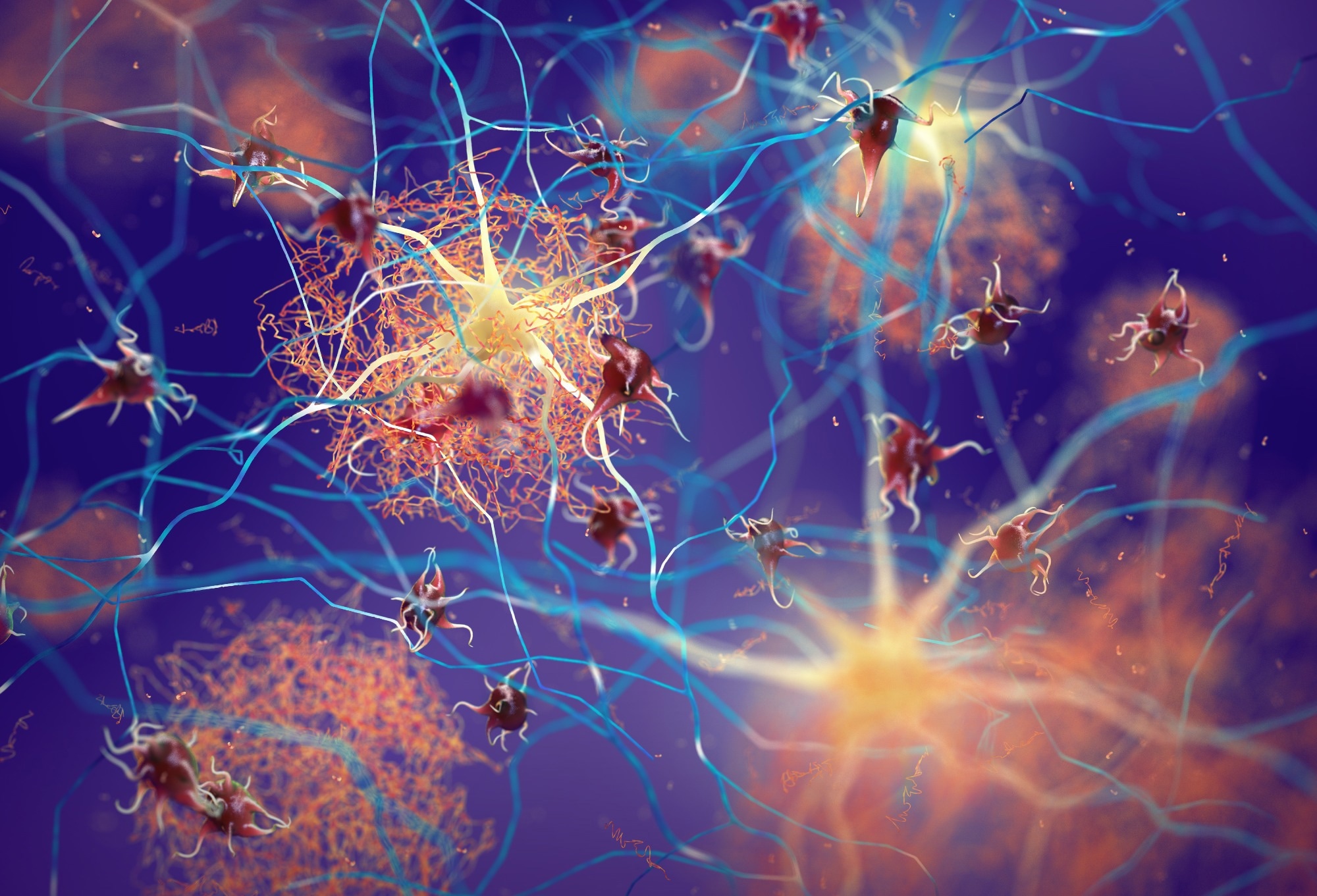In a recent study published in the Experimental Gerontology journal, researchers in the United States assessed the impact of time-restricted eating (TRE) on Alzheimer's disease (AD), cognitive decline, and sleep.
Based on the findings of the United Nations, by the year 2050, one in six people worldwide will be 65 years or older, and one out of four people in western countries will be 65 years or older. Age-related illnesses, such as mild cognitive impairment (MCI) and AD, are correlated with the enormous growth of the elderly population. As there is currently no cure for AD, lifestyle interventions such as calorie restriction (CR) and TRE are offered as viable strategies to hinder the beginning and advancement of the condition. In addition, sleep disorders are frequent among AD and MCI patients. Moreover, emerging evidence suggests that pro-inflammatory cytokines such as tumor necrosis factor-α (TNF-α) and interleukin (IL)-1ꞵ are elevated in AD and MCI patients compared to healthy participants.
 Study: The effects of time-restricted eating on sleep, cognitive decline, and Alzheimer's disease. Image Credit: nobeastsofierce / Shutterstock
Study: The effects of time-restricted eating on sleep, cognitive decline, and Alzheimer's disease. Image Credit: nobeastsofierce / Shutterstock
The Mechanisms Supporting the Neuroprotective Potential of TRE
In the present study, researchers investigated the putative underlying process of TRE's potential neuroprotective benefits and existing related research on the impact of TRE on MCI and AD biomarkers.
Findings indicating that TRE affects autophagy and circadian rhythm by synchronizing food consumption with the circadian rhythm reveal one potential mechanism via which TRE may promote cognitive enhancement. The circadian clock regulates metabolic and physiological processes, such as insulin sensitivity, glucose, cholesterol levels, energy consumption, sleep, inflammation, and cognitive function. Sleep difficulties and AD are frequently associated with circadian rhythm disruption.
TRE also promotes the metabolic transition that is observed 12 to 36 hours after the initiation of fasting and releases free fatty acids into circulation. Human and animal pilot research suggests that the metabolic transition may improve brain health by elevating the proportions of ketone, fibroblast growth factor-2 (FGF2), brain-derived neurotrophic factor (BDNF), autophagy, sirtuin-1 and 3, and deoxyribonucleic acid (DNA) damage, hence enhancing cerebrovascular (CV) and cognitive function.
A growing body of evidence from meta-analyses and systematic reviews indicates a link between obesity and being overweight with cognitive decline and a higher risk of vascular dementia and AD. Furthermore, weight loss has been found to improve cognitive performance in adults who are overweight and obese. Hence, weight loss caused by TRE may be an additional mechanism contributing to cognitive enhancement.
The influence of TRE on cognitive decline and sleep
Sleep disturbances are prevalent in both MCI and AD. Additionally, AD is linked to sleep apnea and insomnia. Sleep problems constitute a significant risk factor for AD and are associated with inflammation. Six experiments used the Pittsburgh Sleep Quality Index (PSQI) to evaluate sleep quality and interruptions. In the most recent study, 82 healthy individuals who were not obese participated in a five-week randomized controlled trial (RCT) that revealed no significant difference in sleep quality among early TRE, mid-day TRE, and the control cohort. However, sleep quality improvement was better in the early TRE cohort.
In a three-year cohort trial, researchers examined the impact of a unique version of TRE in which participants practiced fasting between sundown and sunset just two days a week on cognitive ability among older adults aged over 60 years old having MCI. The cognitive scores of elderly individuals with MCI who regularly practiced intermittent fasting (IF) (two days of TRE/week) for 12 months revealed a remarkable improvement compared to those who did not. In addition, a 36-month follow-up revealed a noticeable improvement in the levels of antioxidant superoxide dismutase, inflammatory indicators, and DNA damage in regular faster cohorts compared to baseline.
The impact of TRE on oxidative stress and neuroinflammation
Two different trials displayed significant alterations in IL-6 levels after TRE interventions. After 12 months, the TRE group showed considerable progress in IL-6 and IL-1ꞵ levels compared to the normal diet control group comprising 20 healthy subjects. Similarly, 28 obese men participated in a one-month RCT of Ramadan TRE. The study found a substantial decrease in IL-6 levels in the TRE during the Ramadan group compared to the control group. In the early TRE group that fasted from 3 p.m. to 6 a.m., IL-8 decreased considerably after a five-week intervention compared to the control group.
It is believed that oxidative stress plays a part in neurodegenerative disorders. In numerous groups, oxidative damage levels strongly correlate with neurodegenerative impairment. An oxidative stress marker called 8-isoprostane may serve as a proxy biomarker for mitochondrial health in AD. So far, only two trials have studied 8-isoprostane plasma levels concerning TRE; in both cases, 8-isoprostane levels decreased dramatically. Early TRE (e-TRE) intervention noted in 12 men with prediabetes for five weeks resulted in a significant decrease in 8-isoprostane compared to the control group.
Conclusion
The study findings highlighted the potential of TRE in lowering the indicators of aging and neurological illnesses. However, the mechanisms behind these benefits remain poorly understood. In addition, the ideal time to commence fasting must be determined in future studies. Additionally, further research needs to be carried out on the potential benefits of TRE against neurodegenerative diseases such as MCI and AD.
Journal reference:
- Armin Ezzati, Victoria M. Pak, The effects of time-restricted eating on sleep, cognitive decline, and Alzheimer's disease, Experimental Gerontology, 2022, 112033, ISSN 0531-5565, DOI: https://doi.org/10.1016/j.exger.2022.112033, https://www.sciencedirect.com/science/article/pii/S0531556522003424